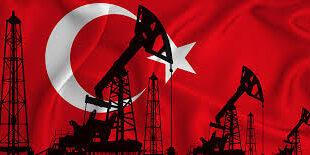Norway currently has 90 oil and gas-producing fields, but – within a few years – it could rise to more than 130.
While the world is struggling to adapt to a changing climate, the Norwegian petroleum industry is booming. Diderik Lund, an economics professor at the University of Oslo, told the news agency NTB that the government’s Covid relief effort is the main reason.
During the first months of the Covid-19 pandemic, the Norwegian parliament gave the oil and gas companies tax breaks as part of a generous relief package.
Critics, not least the Green Party, argued that the changes in the tax system hurt the transition to green energy by making ‘unprofitable’ fossil-fuel projects profitable. They have asked the European Free Trade Association’s (EFTA) surveillance authority to look into the case, because it could be violating the EU rules on state aid.
As an European Economic Area (EEA) member, Norway is part of EU’s internal market.
Rystad Energy, a consulting company, told NTB it has at least 58 upcoming projects – and it will soon update that list.
Hurt by the low price of oil and the pandemic, the industry initially saw a rapid decline in projects, which would have been very difficult for big companies like Aker and Kvaerner, who deliver production facilities to the oil and gas companies.
Second only to Russia
Norway is the largest provider of gas to the EU after Russia. With the price of gas at a record high in the past year, the country exported gas in October 2021 for more than €7bn, also a record.
In the past few years, the Norwegian government has offered a record number of new exploration licenses to oil and gas companies. The new government that entered office last month said it will continue to hand out licences, and the next round will be in January.
While there is a growing demand in Norway for ending the issuing of new licences, there is a solid majority in parliament for continuing the current practice. The government and the oil industry argue that at this stage, a full stop could harm the transition to more renewables.
“If we were to say from one day to the other that we close down production from the Norwegian shelf, I believe that would put a stop to an industrial transition that is needed to succeed in the momentum towards net zero . . . So we are about to develop and transit, not close down,” prime minister Jonas Gahr Støre told the Financial Times.
But this argument is up for discussion.
The SSB (Statistics Norway) stated in a report that the economic consequences of an end to new licences would be minor.
SSB researcher Ådne Cappelen told NTB that more oil production could harm the shift to a greener economy, because offshore wind and the burgeoning hydrogen industry are competing for the same workers.
Norway’s newly-appointed minister for oil and energy, Marte Mjøs Persen told NTB that the increase in production is mostly because the gigantic Johan Sverdrup oil field will reach peak production in 2024. She also added that more fields do not mean higher production, because the new fields are smaller than the old fields.
The European Commission was happy when Norway increased their gas exports to Europe last month. But on the same day that commissioner for energy Kadri Simson praised Norway’s increase, the EU announced in a report that it would work towards banning exploration in the Arctic. The majority of Norway’s future gas and oil reserves are in the High North.
Norway is following the debate about gas and taxes closely. The energy crises have dramatically changed the government’s perspective.
The Norwegian minister for climate, Espen Barth Eide, told media after last month’s Glasgow COP26 that gas will be a part of the green solution, as a better alternative than coal. “Therefore will Europe need Norwegian gas,” he added.

 Iran Energy News Oil, Gas, Petrochemical and Energy Field Specialized Channel
Iran Energy News Oil, Gas, Petrochemical and Energy Field Specialized Channel



